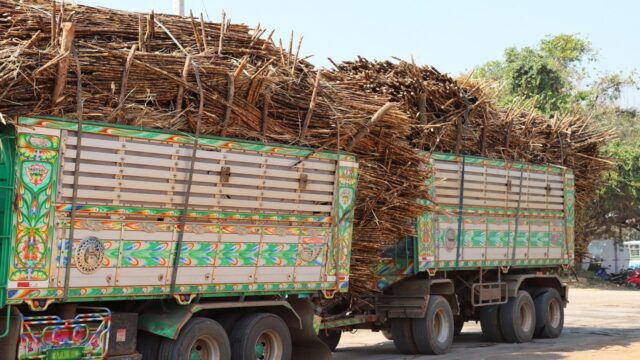Make Money Online
HomeBusiness NewsBalrampur Chini’s Avantika Saraogi says India’s first PLA bioplastics plant to start operations by October 2026
Make Money Online Balrampur Chini Mills is betting big on green chemistry with its upcoming ₹2,850 crore polylactic acid (PLA) bioplastics plant, which will use sugarcane to make compostable, low-emission plastics. Executive Director Avantika Saraogi says the project will not only transform India’s plastic landscape but also make sustainable materials a key revenue driver for the company.

India’s first large-scale polylactic acid (PLA) bioplastics plant is set to begin operations by October 2026, marking a significant step in the country’s green manufacturing journey.
Sugar major Balrampur Chini Mills, which laid the foundation for the project earlier this year under the brand Balrampur Bioyug, plans to produce 80,000 tonnes of bioplastics annually.
Avantika Saraogi, Executive Director of Balrampur Chini Mills, told CNBC-TV18 that the ₹2,850 crore project is on schedule and expected to start commissioning in October 2026. “Products will start coming out from November itself,” she said, adding that the plant would help the company transition towards sustainable materials and build a new growth engine.
Polylactic acid, or PLA, is a bio-based, compostable plastic derived from renewable sources like sugarcane. “Polylactic acid is made by fermenting sugar to make lactic acid, which is then purified to make lactide and then polymerised to make polylactic acid. It resembles regular plastic completely, and it can be used to replace many of the single-use plastics because it has a much shorter carbon cycle and it is compostable,” Saraogi explained.
The global plastic market is estimated at around 650 million tonnes, with bioplastics accounting for just 1-2%. In India, the plastic market is about 20 million tonnes and growing at a rapid pace. According to Saraogi, the domestic market for PLA alone is already around 40,000 tonnes. “We have already started seeding the market under Bioyug PLA, and as we speak, there are more than 50 trials underway with consumers, converters and compounders to start using and making products from the same material that we will be producing,” she said.
Balrampur Chini expects the Bioyug project to become a cornerstone of its green transition strategy. “More than 50% of our revenues will come from green sources—ethanol, co-generation power and PLA—by the time PLA hits full capacity,” Saraogi said, projecting that by FY27–28, half of the company’s revenue will be derived from sustainable products.
She acknowledged that while the cost of PLA resin is currently about double that of regular plastic, economies of scale will help bridge the gap. “A regular PP, PE or PET line is around 400,000 to 500,000 tonnes at a single facility. If we are able to go up to that scale, our pricing would be very close to regular plastic, and this price point conversation would be over,” she said.
Balrampur Chini’s entry into bioplastics marks a new phase of diversification for India’s sugar industry, which is increasingly turning to green alternatives like ethanol and bio-based materials. By using sugarcane—a renewable and high-yield crop—the company hopes to reduce carbon emissions while tapping into the growing global demand for sustainable plastics.
As Saraogi put it, “It’s hard to be the only one, but we are the first to produce bioplastic at an industrial scale in the country. I hope we’re able to positively affect the agri-based industries and make this a larger movement, not just for Balrampur but for India.”
Watch accompanying video for entire discussion.
First Published:
Nov 4, 2025 10:18 PM
IST









